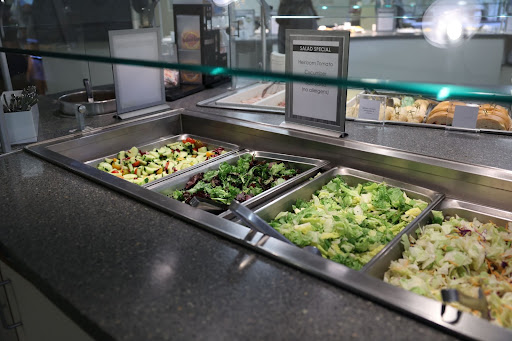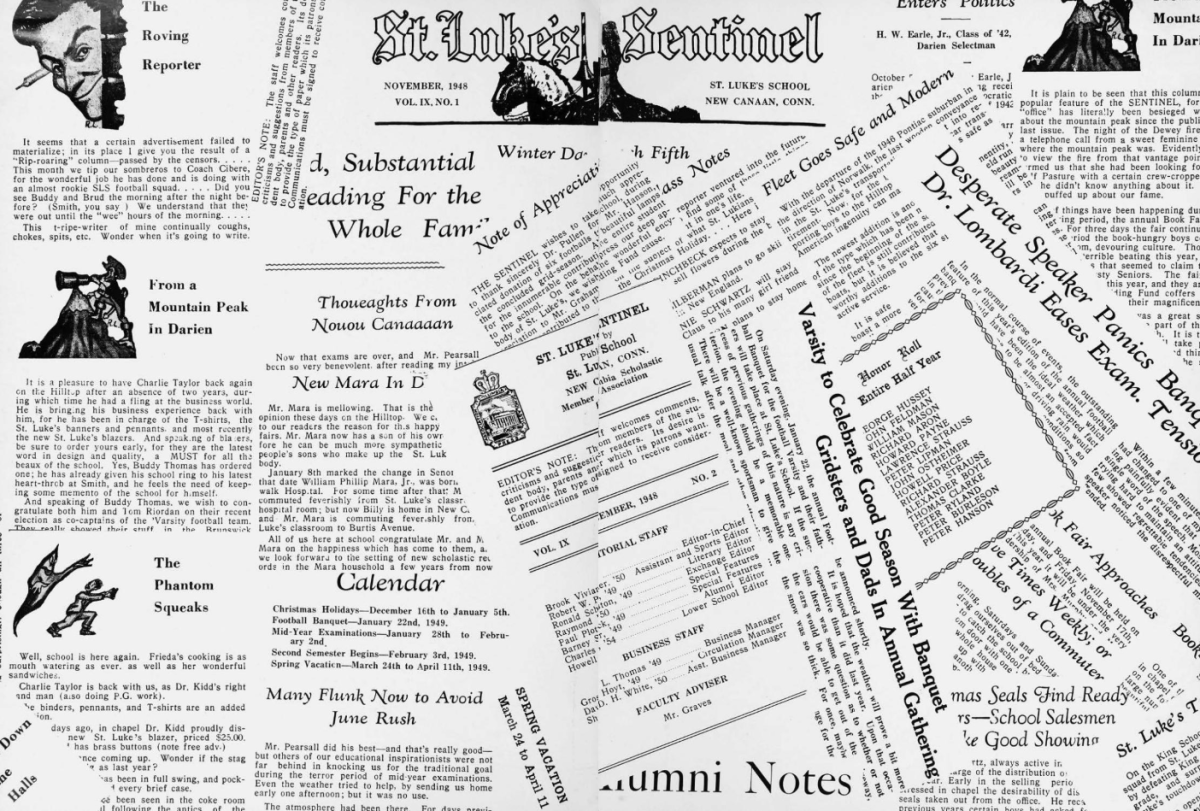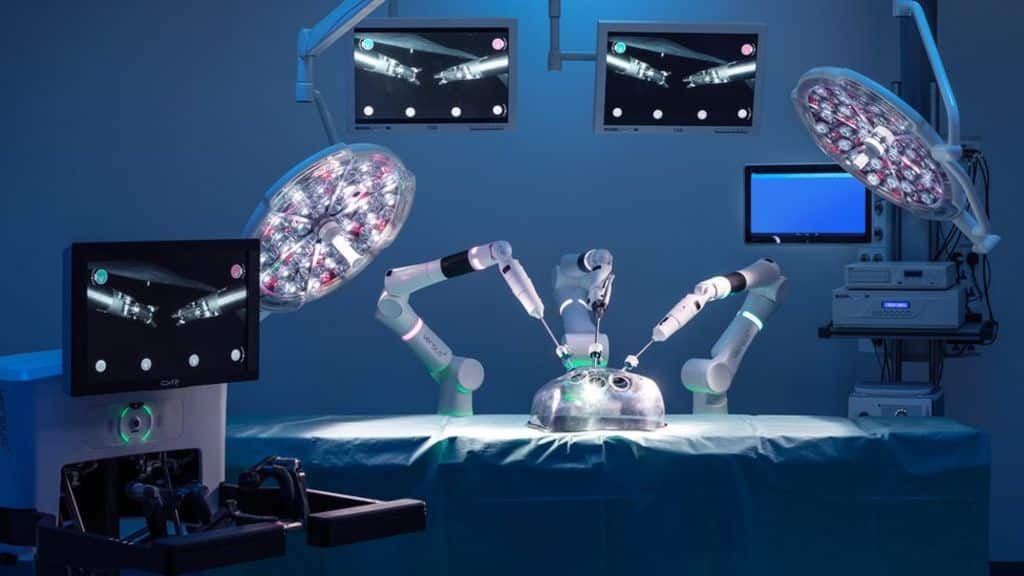St. Luke’s is proud to offer new coffee that is sustainable, ethical, and so good, in fact, that an unnamed faculty member is notorious to Patrick Sullivan, Director of Dining Facilities, because, “he hammers the coffees – he’s good for 15 cups a day.”
Flik has been transitioning to a greener, more waste-conscious model. Students have noticed this firsthand with the addition of Fairtrade coffee in the cafeteria, muffins baked in-house, and pre-made sandwiches at lunch. Last year’s baked goods typically came from bakeries that gave Flik day-old muffins and scones wrapped in plastic. The new muffins have six ingredients and are noticeably fresher and more nutritious.
Behind the scenes, Flik has also made an effort to assess its sustainability practices and is looking for ways to reduce waste in all aspects, ranging from the products themselves to the amount of food we throw away. Each week, the Flik staff combs through its waste in an effort to discover more efficient means of preparation and ways to serve food. In one such instance, Flik discovered that there were large quantities of strawberries with too much fruit attached to the stem, so going forward they’ve made a conscious effort to use more precise instruments while destemming. Additionally, students and teachers often throw away more than half of the food on their plates, with Middle School lunch contributing to a majority of waste. To combat this issue, Flik has employed the WasteNot 2.0 food tracking system. In the coming months, WasteNot 2.0 will help us understand our eating patterns, and Flik plans to take steps to adapt their practices based on the data.
Some students have been actively helping Flik to reduce waste. Nihaal Kochar ‘24 drives all leftover food to a shelter every Friday. Other than giving back to the community, Flik helps by buying all products locally and seasonally. These amiable intentions, though, can lead to some unsolvable problems. For example, within local businesses, Flik can encounter food shortages due to factory management that doesn’t meet their ethical standards. “Things like lack of diversity in vendor staff can prevent our Flik branch from being able to order certain products; headquarters needs to approve each vendor before it becomes available,” says Sullivan.
The Sustainability Club has transitioned the school away from plastic water bottles in favor of environmentally friendly Flow box waters. Last year, the school used 22,000 plastic Poland Spring bottles, which could have been recycled “at a nickel a pop.” Flow, on the other hand, is a Certified B Corporation, meaning that it meets social and environmental standards set for corporations. In Flow’s case, 68-75 percent of the product is recyclable. Flik has also incorporated paper boats (in the sandwich bar), utensils made from biodegradable starch–primarily used for events and barbecues, and the brown napkins that compost completely.
One of the major obstacles that Flik faces involves meetings in seminar rooms and the Grey House. Groups using these spaces often order too much food for meetings and sometimes barely touch the platters, leading to a massive waste of food. According to Sullivan, “Flik staff often return to the meeting room to find one muffin missing out of 20, coffee pots untouched and sandwich platters half full; still, they need to throw it out.” He suggests the implementation of a pre-order program for food and beverages in these meetings and is calling on committees to assess their need for Flik service.
Students and faculty alike are looking forward to Flik’s future in sustainable practices, and we hope the whole community will do their part in furthering this mission.








![iStock. (n.d.). Anonymous business partners making handshake in shadow [Photograph].](https://digitalsentinel.org/wp-content/uploads/2025/04/Screenshot-2025-04-16-at-3.42.57 PM.png)







Jeorge Yankura • Nov 10, 2023 at 8:25 am
Very thorough article – I learned a lot. Nice investigative reporting!